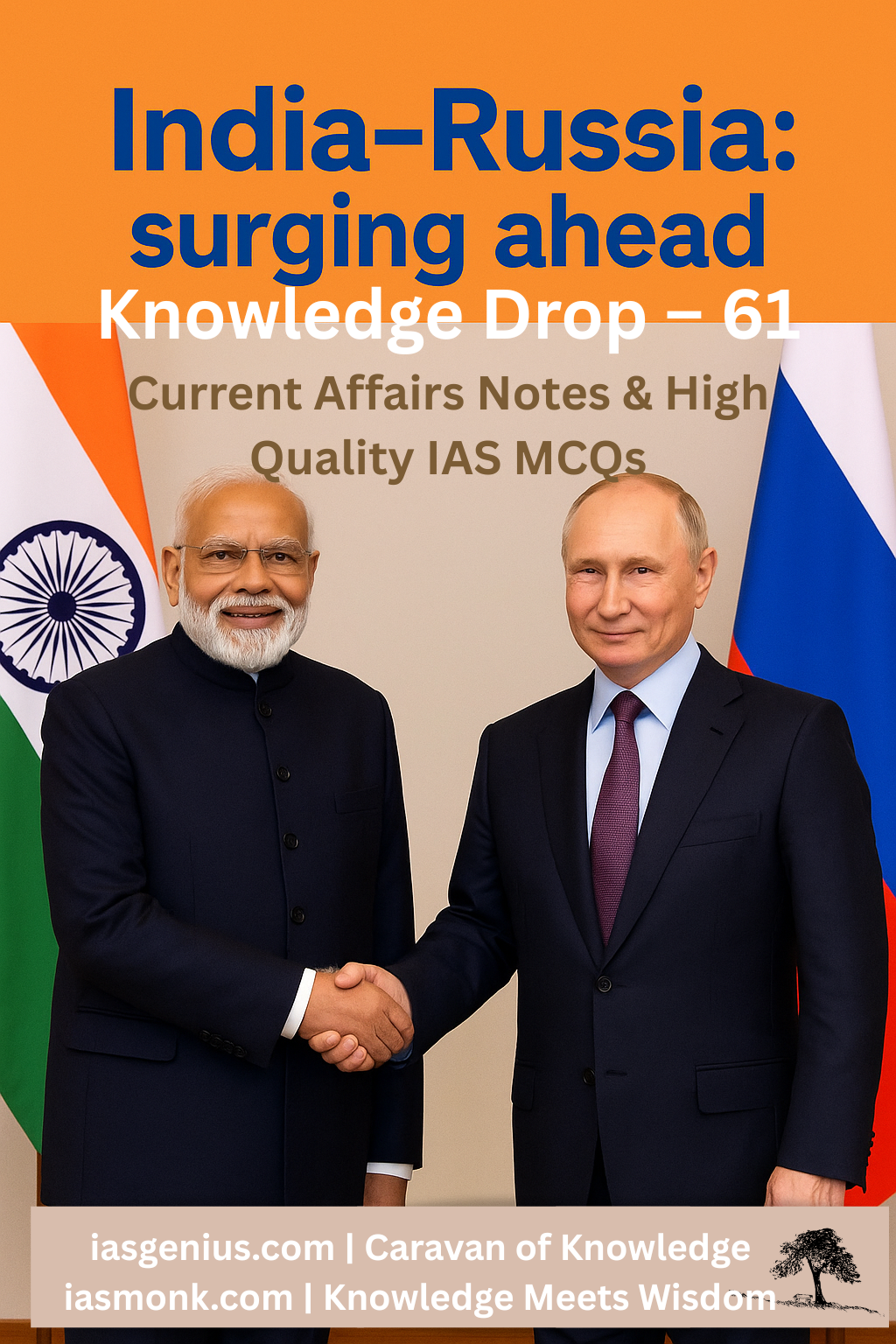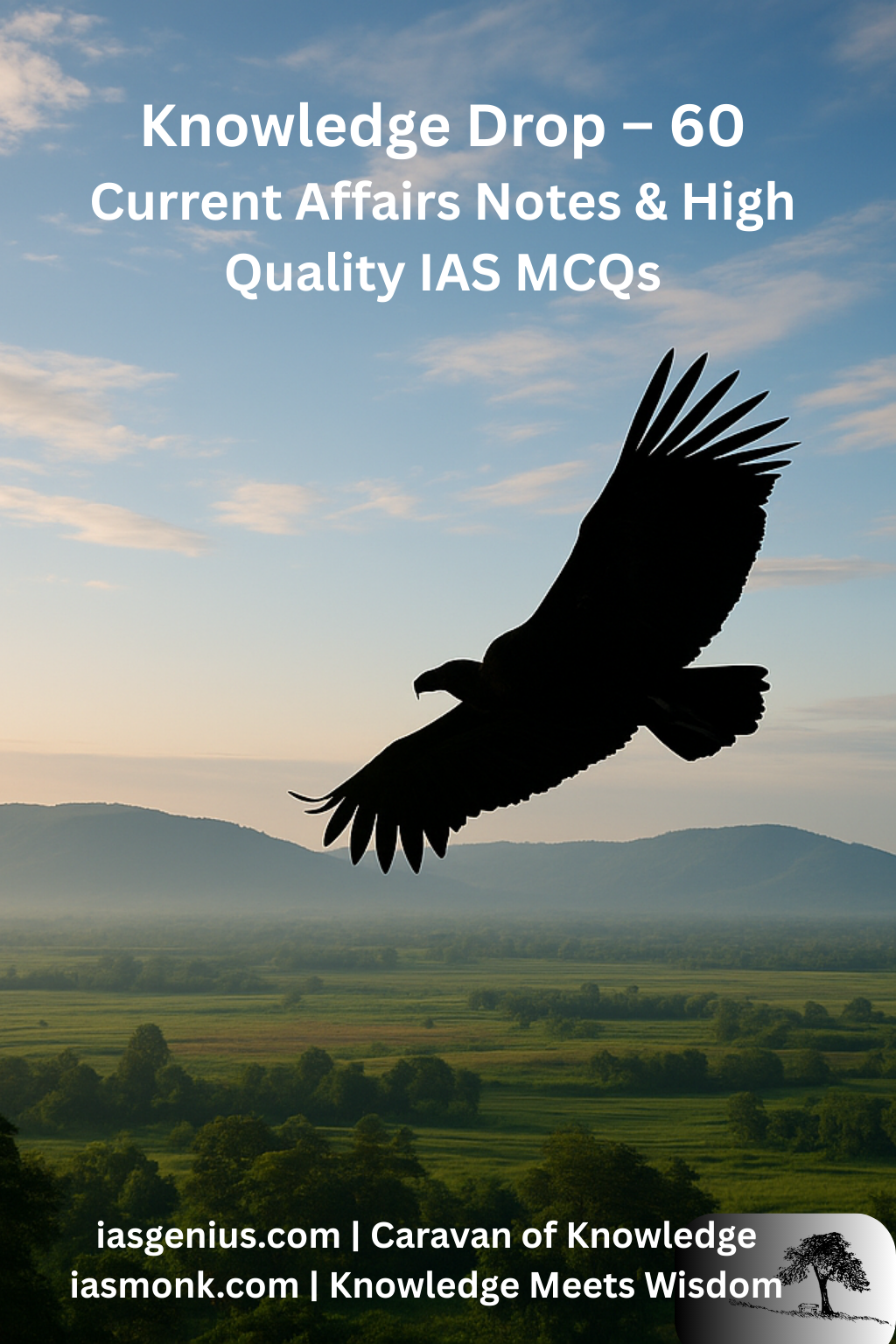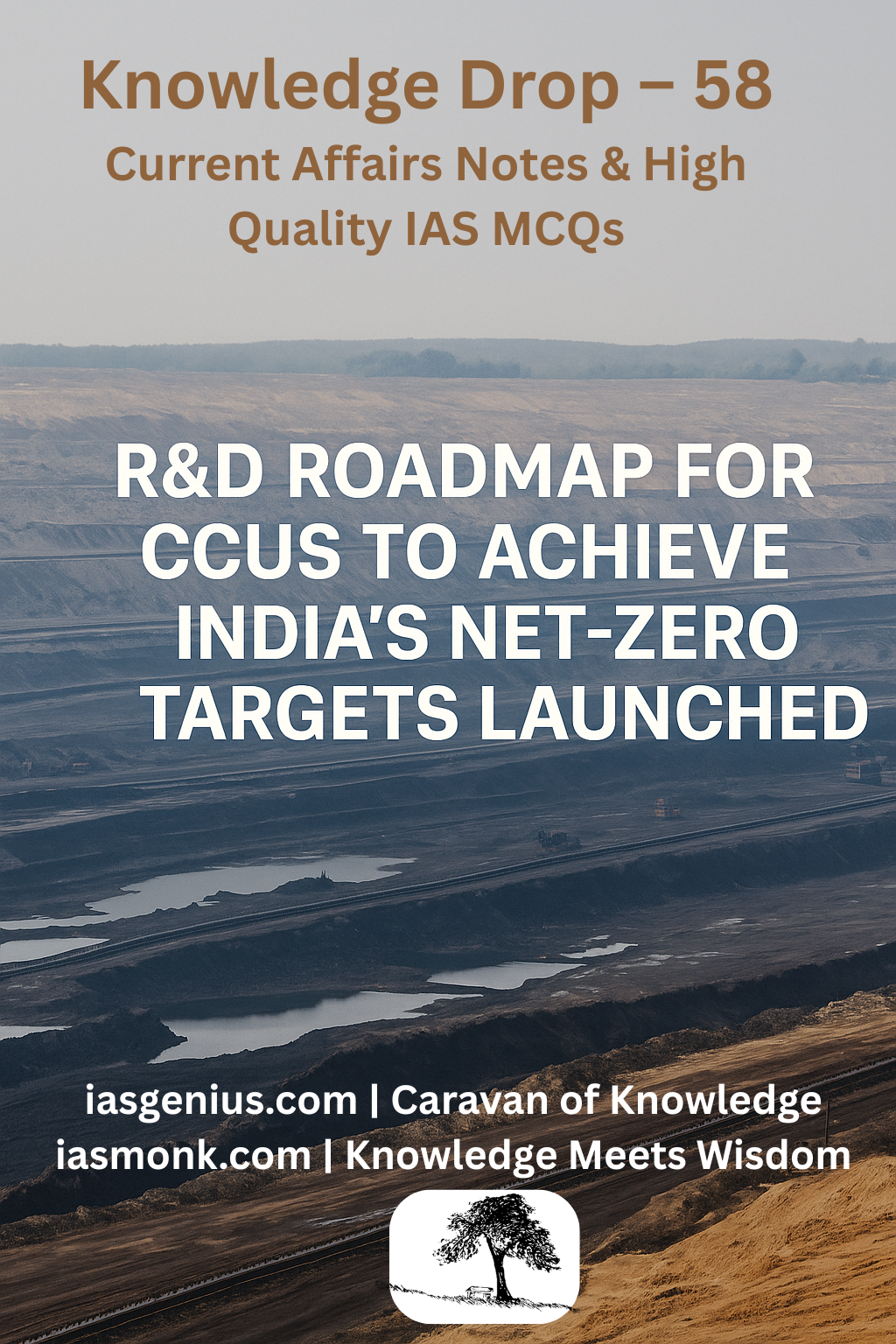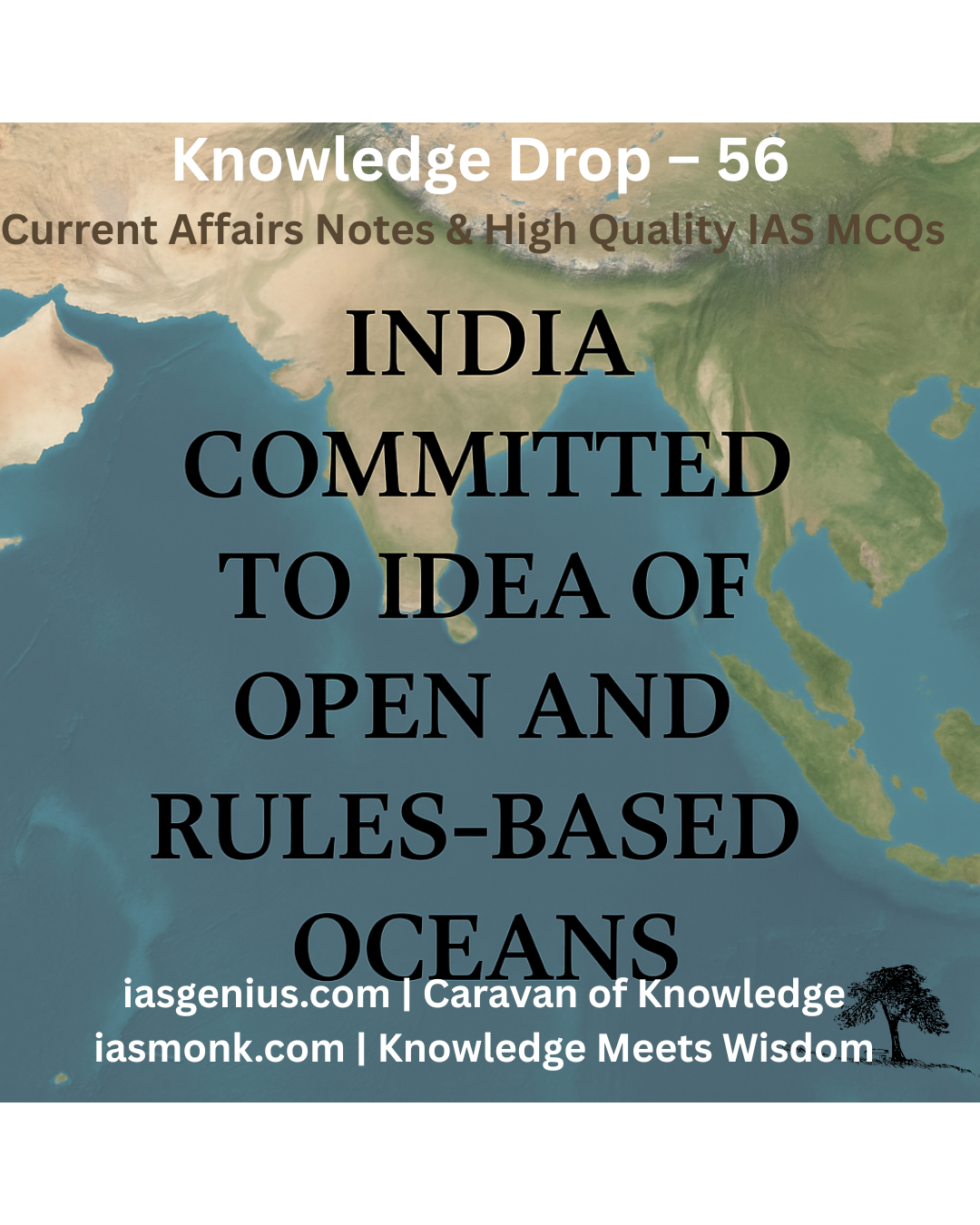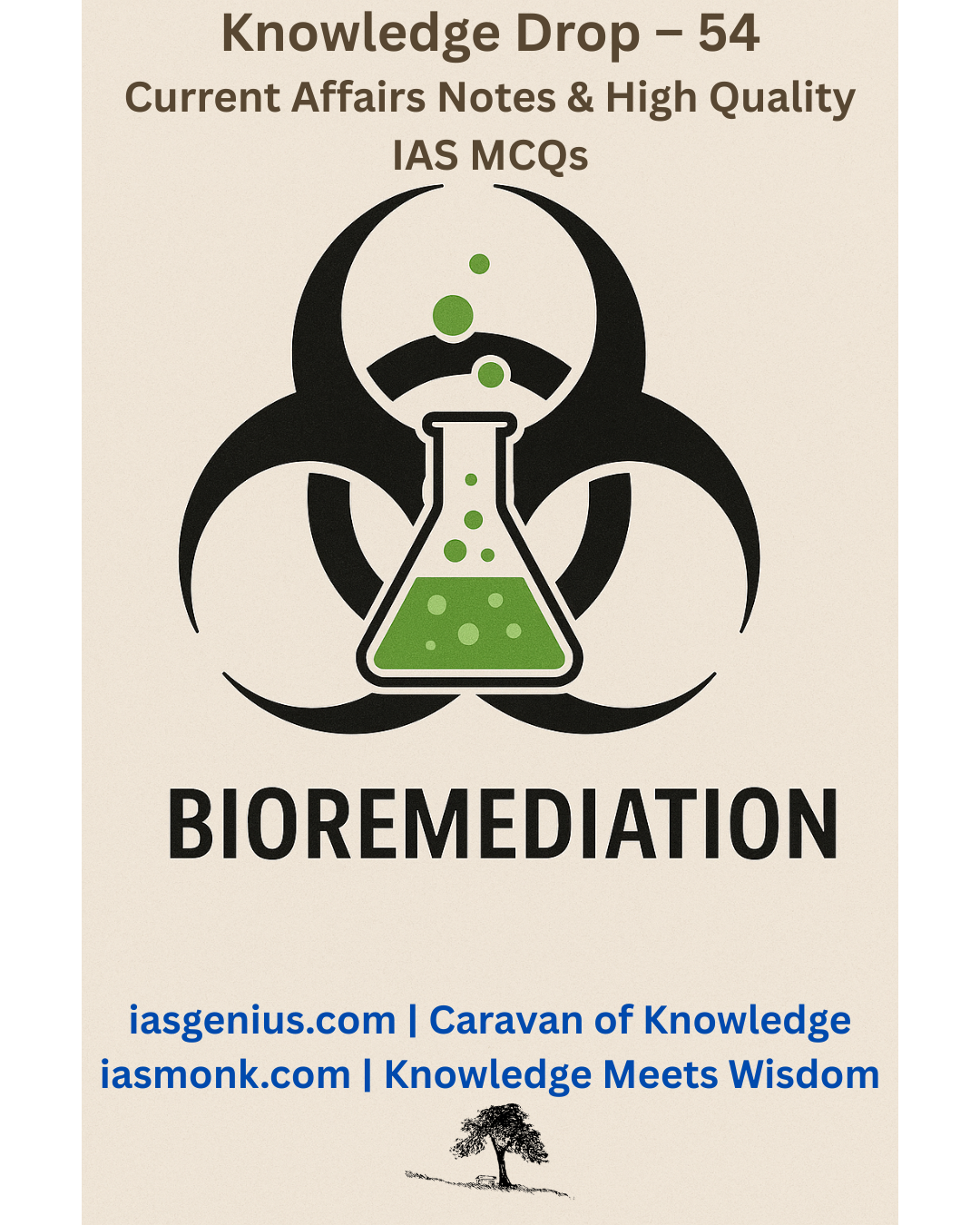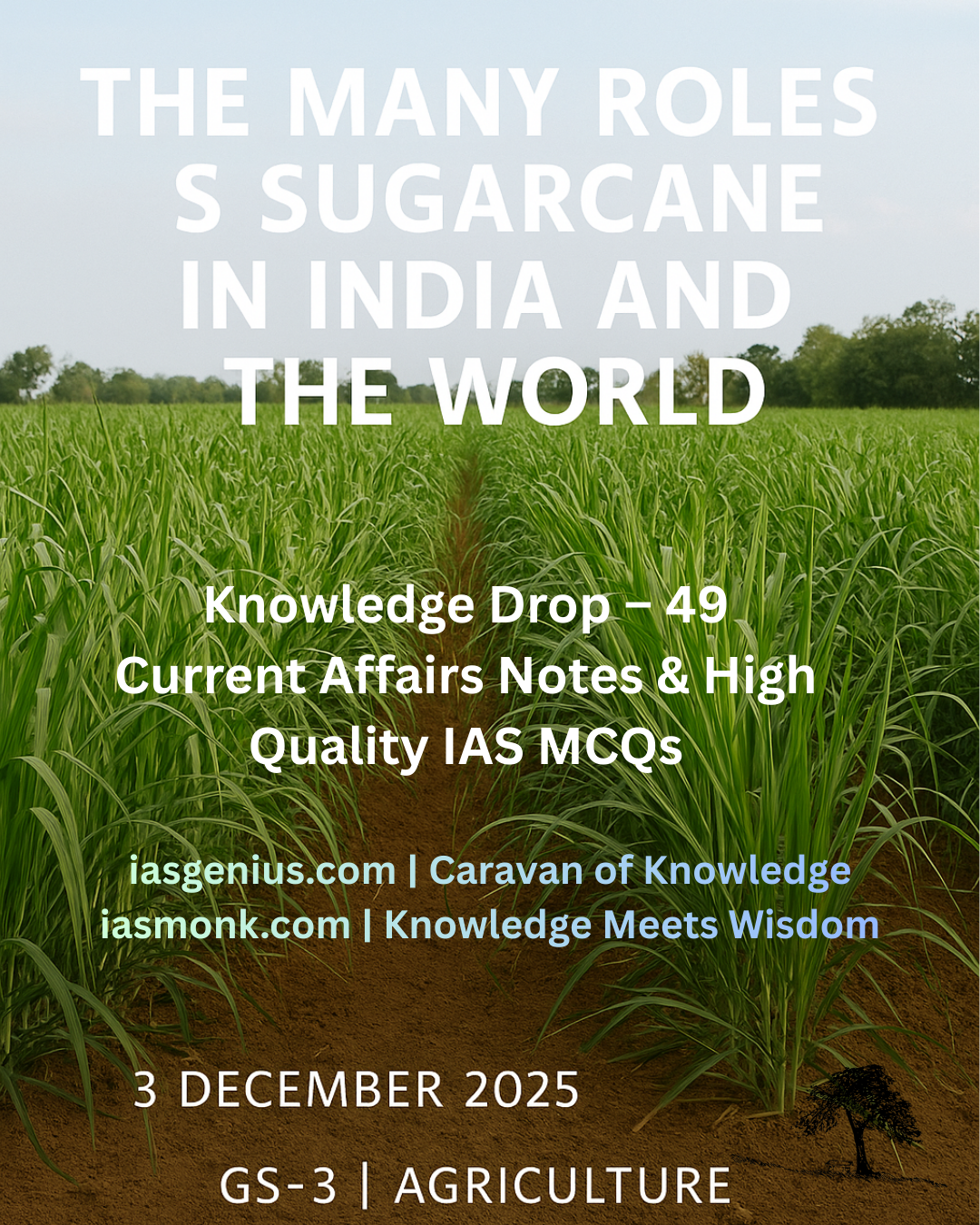Notes, Mains Practice Questions & Essays on YOJANA, JANUARY 2025: Lesson 1
“Historical Perspectives on Indian Knowledge Systems”
📌 Highlight: Attached:
🌀3 Mains Mock Questions (250 words)
🌀2 Full Length Essays (250 Marks)
🪷 THEME: Civilizational Continuity, Cultural Wisdom, Knowledge as Dharma
🏛️ CATEGORY: Indian Culture, Education Reforms, Epistemology
📜 INTRO WHISPER
Before books were written, knowledge flowed in chants and questions. The Indian Knowledge Systems (IKS) were never merely disciplines — they were doorways, through which the seeker walked inward, and the civilization soared outward.
🔍 CORE HIGHLIGHTS
🕉️ Foundational Frameworks
- Vedas: Four-fold knowledge (Rig, Yajur, Sama, Atharva) covering spiritual rituals, governance, and natural sciences.
- Upvedas: Applied sciences – Ayurveda (medicine), Dhanurveda (martial arts), Shilpaveda (architecture), Gandharvaveda (arts).
- Upanishads & Puranas: Philosophy (Paravidya & Aparavidya), cosmology, ethics.
Eg: Brahmavaivarta Purana‘s reflection on time parallels relativity.
🌀 Philosophical Essence
- Vidya vs Avidya: Harmonizing spiritual liberation (Moksha) with material prosperity.
- Ethical duality: As seen in Bhagavad Gita — duty, renunciation, and balance.
📜 Historical Preservation
- Oral Tradition: Millennia-old transmission before scriptural codification.
- Texts: Vedas (~1500 BCE), Puranas (4th BCE–11th CE), Epics.
- Colonial Impact: British educational interventions led to institutional decline.
🪔 CIVILIZATIONAL CONTRIBUTIONS
- Astronomy & Mathematics: Aryabhatta, Bhaskaracharya, Baudhayana – trigonometry, pi, and planetary models.
- Medicine: Charaka & Sushruta Samhitas, Siddha medicine – surgeries, preventive care, herbs.
- Arts & Aesthetics: Natya Shastra — codification of drama, rasa theory, musical theory.
- Craft & Engineering: Delhi Iron Pillar, Muga silk, terracotta precision — sustainable and skill-intensive.
🌱 MODERN RESONANCE
- Institutional Push: IKS Division (2020), NEP 2020 emphasizes IKS in curriculum.
- Well-being: Yoga, Ayurveda, and natural living gaining global acceptance.
- Interdisciplinary Integration: Environmental ethics, sustainable architecture, educational innovation.
- Local Legacies: Tribal, Siddha, Northeast traditions being revived and digitized.
⚖️ CHALLENGES & PROSPECTS
- Gaps in Custodianship: Fragmentation, mistranslation, loss of oral narrators.
- Scope for Collaboration: Scholars + local communities + tech = preservation & relevance.
- Contemporary Application: IKS as answer to climate challenges, healthcare equity, and educational reform.
🧭 GS PAPER MAP
- GS I: Indian Culture – Contributions of IKS to knowledge and civilization.
- GS II: Government Schemes – NEP 2020, IKS Division under Ministry of Education.
- GS III: Science & Tech – Traditional Sciences, Heritage-Based Innovation.
- Essay/Interview: “Knowledge as Liberation: Ancient India’s Legacy in the Modern Mind.”
🪔 A THOUGHT SPARK — by IAS Monk
IKS is not just a window to the past — it is a mirror to the soul of a civilization. When we revive these roots, we don’t just remember — we realign. Between the chant and the calculation, India once knew how to live. Perhaps, it still does.
Mock Questions for Practice On Chapter 1 – Historical Perspectives on Indian Knowledge Systems:
🧠 MAINS QUESTIONS
- GS I – Indian Culture:
“Indian Knowledge Systems reflect the civilizational unity of India despite its regional diversity.”
Discuss with relevant examples from fields like science, philosophy, and medicine. - GS II – Education Policy:
Critically analyze the role of NEP 2020 in reviving Indian Knowledge Systems. How can it be integrated meaningfully in modern curricula without fostering dogma? - GS III – Science and Technology:
“Traditional Indian sciences like Ayurveda and Astronomy are not obsolete; they are under-applied.”
Evaluate this statement in light of contemporary global relevance of IKS.
📝 ESSAY/REFLECTIVE QUESTIONS
Essay/Philosophy:
“Vidya is not what you know; it is how you live what you know.”
Explore how Indian philosophical traditions linked knowledge to liberation, not mere information.
Essay:
“A civilization that forgets its knowledge roots forgets how to bloom.”
Reflect on this thought in the context of Indian epistemic heritage.
Suggested Answers:
GS I – Indian Culture
Q. “Indian Knowledge Systems reflect the civilizational unity of India despite its regional diversity.”
Discuss with relevant examples from fields like science, philosophy, and medicine.
(Word Limit: ~300)
Answer:
Indian Knowledge Systems (IKS) represent one of the oldest and most continuous traditions of integrated, holistic thought in the world. Despite the rich tapestry of linguistic, geographic, and cultural diversity across India, IKS reflects an undercurrent of civilizational unity rooted in shared cosmologies, ethical codes, and epistemological structures.
At the heart of IKS lies the philosophical continuum of Dharma, Vidya, and Moksha — found across regions in texts as varied as the Upanishads, Bhagavad Gita, and Jain Agamas. Whether in Kashmir Shaivism or Tamil Siddha traditions, the pursuit of truth and harmony remains a constant.
Scientific unity is evident in mathematics and astronomy. Scholars like Aryabhatta (Pataliputra), Varahamihira (Ujjain), and Bhaskara II (Karnataka) developed trigonometric and planetary models that were shared and adapted across regions, creating a pan-Indian scientific culture.
In medicine, the Ayurvedic principles of balance (doshas) and holistic healing pervade both North and South Indian practices, from Sushruta Samhita in Varanasi to Siddha medicine in Tamil Nadu. The shared conceptual framework of body-mind-spirit integration persists even as local herbs and techniques vary.
Oral traditions, gurukul systems, performing arts (Natya Shastra), and metallurgical feats (Delhi Iron Pillar) further demonstrate the civilizational coherence of IKS — where spiritual wisdom coexists with material innovation.
In sum, IKS serves as a unifying substratum that transcends regional variations. It embodies a shared civilizational ethos, reinforcing that Indian diversity is not divisive, but an expression of one profound intellectual and spiritual tradition.
GS II – Education Policy
Q. Critically analyze the role of NEP 2020 in reviving Indian Knowledge Systems (IKS). How can it be integrated meaningfully in modern curricula without fostering dogma?
(Word Limit: ~300)
Answer:
The National Education Policy (NEP) 2020 marks a paradigm shift by formally recognizing the significance of Indian Knowledge Systems (IKS) as part of holistic and multidisciplinary education. This is a conscious effort to reconnect India’s intellectual roots with its modern educational aspirations.
NEP emphasizes inclusion of IKS at school and higher education levels, promoting awareness of India’s contributions to mathematics, medicine, philosophy, linguistics, architecture, agriculture, and more. It mandates the establishment of the IKS Division under the Ministry of Education to facilitate documentation, research, and curricular integration.
This revival is timely and necessary, given that colonial education policies marginalized indigenous traditions. However, there are critical concerns about how IKS will be presented. If not handled carefully, such integration risks romanticizing the past or becoming ideologically skewed.
To prevent dogma and promote meaningful learning:
- IKS must be approached as a living knowledge tradition, not just heritage.
- Its content should be evidence-based, critically examined, and presented alongside global knowledge systems for comparative insight.
- Interdisciplinary teaching — blending IKS with modern sciences, ethics, ecology, and AI — can inspire innovation.
- Collaboration with scholars, traditional practitioners, and scientists will ensure authenticity and relevance.
By embedding IKS into curricula not as glorification but as inquiry, NEP creates space for a more rooted and reflective citizenry, capable of applying ancient insights to contemporary challenges like climate change, mental health, and sustainable living.
In conclusion, NEP’s inclusion of IKS offers immense potential, but its success depends on balanced implementation, critical pedagogy, and a spirit of inquiry over ideology.
GS III – Science and Technology
Q. “Traditional Indian sciences like Ayurveda and Astronomy are not obsolete; they are under-applied.” Evaluate this statement in light of the contemporary global relevance of Indian Knowledge Systems (IKS).
(Word Limit: ~300)
Answer:
The statement rightly reflects a growing realization that traditional Indian sciences, though centuries old, hold latent potential for addressing modern challenges — not as outdated relics, but as under-applied wisdom systems.
Ayurveda, for instance, is gaining global traction for its preventive approach, mind-body balance, and natural therapeutics. Its holistic emphasis on diet, digestion, seasonal rhythms, and psychosomatic harmony is now being recognized in integrative medicine and wellness industries worldwide. Yet, scientific validation, standardization, and contemporary application of Ayurvedic protocols remain limited in mainstream healthcare.
Similarly, Indian astronomy and mathematics — led by ancient scholars like Aryabhatta, Bhaskara, and Varahamihira — anticipated trigonometric ratios, planetary motions, and even concepts akin to calculus. These insights remain under-integrated in mainstream curricula, despite their relevance to history of science and innovation culture.
One major barrier is the colonial and post-colonial epistemic bias that marginalized traditional sciences in favor of Western frameworks. Consequently, IKS is often excluded from research funding, academic platforms, and policy dialogues.
However, recent developments — such as the IKS Division of the Ministry of Education, AI-based applications of Ayurveda, and revival of ancient metallurgy and architecture — signal a renewed engagement.
To unlock their potential, traditional sciences must be:
- Scientifically validated through interdisciplinary research,
- Digitally documented and made accessible,
- And taught in a comparative, critical, and application-driven manner.
In essence, Indian traditional sciences are not antiquated — they are reservoirs of contextual intelligence waiting to be reinterpreted through modern lenses, especially in areas like climate resilience, ethical technology, and sustainable health.
Essay Q.1: Word Limit: 1000-1200 Max Marks 125
Write an essay: “A civilization that forgets its knowledge roots forgets how to bloom.”
(Word Limit: 1000-1200)
Answer:
INTRODUCTION: THE ROOTS THAT NURTURE THE BLOOM
A civilization is more than the sum of its monuments, economies, or wars. It is a living consciousness, carried through time by the ideas, insights, and intuitions that once breathed life into it. These are its knowledge roots — the philosophical, scientific, cultural, and ethical systems that shaped how it saw the world and lived within it. When a civilization disconnects from these roots, it does not merely suffer amnesia — it risks decay. The statement “A civilization that forgets its knowledge roots forgets how to bloom” is not just a poetic warning; it is a timeless truth, echoed in history and resonating in India’s own contemporary journey of rediscovery.
INDIA’S KNOWLEDGE ROOTS: ANCIENT AND ALIVE
India is one of the very few civilizations in the world where knowledge systems evolved not as mechanical sciences but as ways of living. The Vedas, Upanishads, Puranas, Ayurveda, Arthashastra, Natya Shastra, and Yoga Sutras — these were not siloed streams of thought but interwoven dimensions of life. They explored questions of cosmology and governance, ethics and agriculture, language and consciousness.
The very idea of Vidya in the Indian tradition is holistic. Knowledge was not mere information (Jñāna), but illumination (Prajñā). It was to be practiced — not preached; lived — not listed. It sought not control over nature, but harmony with it. This is why Indian knowledge systems included forest ecology, metaphysics, arts, and astronomy in a seamless fabric.
COLONIAL INTERRUPTIONS AND THE LOSS OF ROOTS
However, with the onset of colonial rule, these roots were deliberately severed. The British education policy, especially Macaulay’s Minute on Indian Education (1835), described Indian knowledge as inferior and obsolete. Traditional gurukuls were dismantled, Sanskrit was sidelined, and Western epistemology replaced indigenous modes of inquiry.
India’s own perception of its knowledge traditions began to shift — from reverence to ridicule, from relevance to relic. The language of thought changed. English replaced not only Sanskrit or Persian but also the conceptual frameworks they carried. As generations grew up unfamiliar with their philosophical and scientific ancestry, a rupture occurred. The roots remained, but the bloom faded.
CONSEQUENCES OF ROOTLESSNESS
This forgetting has consequences far beyond academia. A civilization unsure of its knowledge foundations suffers in many ways:
- Loss of Self-Worth: The youth, cut off from civilizational memory, begin to look outward for validation. This breeds mimicry, not mastery.
- Cultural Erosion: When knowledge systems are lost, so are rituals, festivals, medicines, languages, and worldviews — all vital for cultural continuity.
- Dependency: Countries that abandon their traditional knowledge often become consumers, not creators. This affects innovation, policy, and self-reliance.
- Fragmented Identity: Without an integrated knowledge framework, societies drift into silos — science without ethics, development without sustainability, and education without wisdom.
SIGNS OF REBLOOMING: REVIVAL OF IKS IN MODERN INDIA
Yet, like a tree that re-sprouts from its roots, India is showing signs of reblooming. The NEP 2020 marks a significant shift in recognizing the value of Indian Knowledge Systems (IKS). The creation of the IKS Division under the Ministry of Education in 2020 is aimed at integrating traditional wisdom into contemporary pedagogy.
Fields like Ayurveda, once dismissed, are gaining global respect. Yoga, declared an intangible cultural heritage by UNESCO, is now celebrated through International Yoga Day. The revival of Indian classical music, Indic logic, temple architecture, natural farming, and Sanskrit computational linguistics shows that the seeds were never truly lost — only buried.
LEARNING FROM THE WORLD: GLOBAL RECOGNITION OF CIVILIZATIONAL ROOTS
Other civilizations have already realized this. China revived Confucian classics to rebuild cultural pride. Japan blends Zen with robotics. Islamic nations reclaim contributions of medieval scientists like Ibn Sina and Al-Khwarizmi. In the West, there is a renewed interest in indigenous knowledge and post-colonial critique.
India must do the same — not as a return to the past, but as a recovery of vision. This is not about rejecting modern science but re-rooting it in India’s civilizational soil, to make it more sustainable, inclusive, and soulful.
BALANCING REVIVAL WITH RATIONALITY
However, rediscovering knowledge roots must be done with care. Revival should not descend into romanticism or blind glorification. IKS must be subjected to rigorous scholarship, critical inquiry, and empirical validation. Myth and metaphor must be distinguished from method and model.
We must avoid replacing colonial biases with civilizational chauvinism. The aim is not cultural supremacy, but cultural harmony — where India’s contributions are seen not as fossils, but as flowing rivers feeding the global ocean of knowledge.
THE BLOOM OF CIVILIZATIONAL CONFIDENCE
When a civilization reclaims its roots, it blooms with new confidence:
- In policy, it drafts education and development strategies that align with its ethos.
- In science, it explores fusion of ancient wisdom and modern innovation.
- In diplomacy, it speaks from a place of cultural strength, not borrowed slogans.
- In education, it raises learners who are both intellectually global and spiritually rooted.
India’s ancient rishis envisioned knowledge not as a ladder to career, but as a lamp for life. In reconnecting with this vision, we don’t just teach students to think — we teach them to see.
CONCLUSION: BLOOMING FOR THE WORLD
A civilization that forgets its knowledge roots forgets how to bloom — and worse, forgets why to bloom. But a civilization that remembers, not just with nostalgia but with nourishment, can bloom not only for itself, but for the world.
India, in remembering its Vidya, is not returning to the past — it is restoring the future. The roots are deep. The soil is rich. The season is now. All that remains is to blossom — again.
Essay Q2: Word Limit: 1000-1200 Max Marks 125
“Vidya is not what you know; it is how you live what you know.”
Answer:
INTRODUCTION: THE LIVING LIGHT OF KNOWLEDGE
In an age obsessed with data and degrees, the essence of knowledge has become fragmented — measured by accumulation, not application. Against this backdrop, the profound Indian insight — “Vidya is not what you know; it is how you live what you know” — reclaims knowledge as a lived experience, not a lifeless storehouse. Rooted in India’s philosophical traditions, this statement elevates knowledge (Vidya) from information to transformation — a process of becoming, not merely knowing.
I. DEFINING ‘VIDYA’ IN THE INDIAN TRADITION
In Indian epistemology, Vidya is more than book-learning. The word comes from the root “vid” meaning “to know,” but it implies illumination, liberation, and integration of the self with the cosmos. The Upanishads distinguish between:
- Parāvidyā (higher knowledge) — that which leads to moksha or inner liberation
- Aparāvidyā (lower knowledge) — material, procedural, utilitarian knowledge
The ideal in Indian thought is not to abandon the world, but to harmonize both realms — using aparāvidyā for worldly needs and parāvidyā for self-realization.
II. KNOWLEDGE AS CHARACTER: WALKING THE TALK
This concept echoes across spiritual and ethical texts:
- The Bhagavad Gita stresses that one’s karma (action) must be guided by viveka (discernment), not just knowledge. Arjuna’s paralysis on the battlefield was not due to ignorance, but the disconnect between what he knew and how he lived.
- Taittiriya Upanishad urges students to “speak the truth and practice dharma,” reminding us that knowledge without ethical conduct is hollow.
- Sankhya-Yoga philosophy insists on knowledge that purifies perception and leads to detachment, discipline, and inner joy.
Knowledge, in this view, is not theoretical—it is a way of being.
III. EDUCATION VS. WISDOM: MODERN PARADOXES
In today’s world, education has become synonymous with memorization, certification, and monetization. One may score full marks in ethics, yet fail the test of integrity in life. This dissonance reflects a loss of inner Vidya.
- Technocrats without conscience, policymakers without empathy, and students burdened with information but no insight — are signs of this rupture.
- Our classrooms teach how to code, but not how to care; how to optimize, but not how to empathize.
This paradox stems from reducing knowledge to transaction, ignoring its transformative power.
IV. EXEMPLARS OF LIVED KNOWLEDGE
Throughout Indian history, some of the most respected figures embodied this principle of lived Vidya:
- Mahatma Gandhi: A barrister trained in law, but who chose to live out the Bhagavad Gita’s teachings in ahimsa and satyagraha.
- Swami Vivekananda: His knowledge of Vedanta was not just scriptural — it manifested in courage, compassion, and fearless dialogue with the West.
- Dr. APJ Abdul Kalam: Bridged the world of science and spirit, often quoting the Gita and Thirukkural, and lived a life of austerity and national service.
These individuals proved that wisdom is what shapes decisions, disciplines desires, and serves a larger purpose.
V. SOCIETAL IMPLICATIONS OF LIVING VIDYA
When Vidya is lived, it transforms not just individuals but institutions:
- In Governance: A minister guided by Vidya will uphold justice, even when unpopular. Policies will be people-centered, sustainable, and inclusive.
- In Science & Technology: Scientists rooted in Vidya will innovate not just for profit, but for planetary good — as seen in India’s frugal space missions or green technologies.
- In Education: Schools will not be factories of exam-takers but gardens of ethical thinkers. The gurukul model emphasized inner growth as much as outer skills.
- In Environment: Vidya teaches harmony with nature. Traditional Indian communities saw rivers as mothers, not resources. Living this ethos is the need of our climate-struck times.
VI. APPLICATION IN THE GLOBAL CONTEXT
The Indian perspective is not isolated — it resonates globally:
- Socrates believed knowledge is virtue — to know the good is to do the good.
- Confucianism promotes ren (humaneness) as the hallmark of the educated.
- In Ubuntu philosophy, wisdom is relational — “I am because we are.”
In the West, however, knowledge has largely become instrumental, divorced from ethical vision. India’s IKS reminds the world that knowledge is sacred only when it is integrated with being.
VII. INTEGRATING ‘LIVING VIDYA’ IN MODERN TIMES
To bring back this lived Vidya, the following steps are crucial:
- Educational Reforms: As NEP 2020 proposes, include ethics, philosophy, and experiential learning. Encourage reflective assignments, not just rote tests.
- Teacher Training: Teachers must embody Vidya, not just deliver content. They must guide students in living what they learn.
- Public Discourse: Politicians, celebrities, and influencers must be judged not just by what they say, but how they embody their ideals.
- Technology with Ethics: As AI and biotechnology expand, we need Vidya-based ethics to guide innovation. Can we do it must be balanced with should we do it.
VIII. CAUTION: AVOIDING DOGMA IN THE NAME OF VIDYA
While reviving Vidya, we must avoid pitfalls:
- Don’t confuse blind faith with lived wisdom.
- Don’t reduce ancient truths to moral policing or nostalgia.
- Don’t ignore modern knowledge systems — the goal is integration, not exclusion.
True Vidya is inclusive, dynamic, and contextual. It evolves with time, but remains anchored in timeless values.
CONCLUSION: KNOWLEDGE THAT BLOOMS FROM WITHIN
Vidya is not what you know; it is how you live what you know.
This is not a slogan — it is a call to revolutionize the way we understand ourselves, our institutions, and our civilization. In this light, the purpose of education is not to create specialists alone, but whole human beings — wise, rooted, resilient, and radiant.
A society that lives its Vidya will rise not just in GDP or technology — but in dharma, dignity, and direction. It will not merely survive.
It will bloom.

